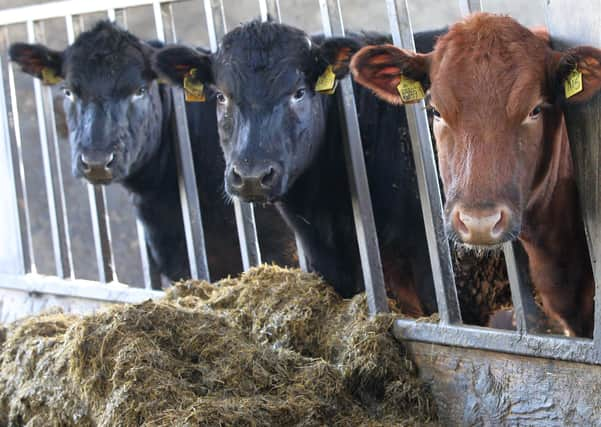First beef exports to US in 20 years after BSE outbreak in 1996


The beef export trade closed with immediate effect after the bovine spongiform encephalopathy (BSE) outbreak in 1996.
It is estimated to boost the beef industry by around £66 million over the next five years. Industry representatives have indicated that beef trim and offal are being the most favoured for export at this point.
Advertisement
Advertisement
The first shipment was from Foyle Food Group (Campsie). The US market is an important outlet market for red meat products. The industry has worked really hard over the past 10 years to come to this point. In 2017 the Northern Ireland (NI) beef sector achieved negligible risk status for BSE. Negligible risk status has helped improve the global image of NI as a disease-free area and has assisted in opening the US market and hopefully more new markets across the world for our premium red meat products.
NI beef producers produce traceable, trustworthy beef farmed to some of the highest animal welfare, environmental and food production standards in the world so hopefully it will pay off and primary producers will seek benefit from this.
However, we do need to be cautious when the UK government discusses a trade deal with the US or other countries. International Trade Secretary Liz Truss said: “We are seeking an ambitious and high standards agreement that benefits farmers and delivers for consumers.”
This is all well and good, but we need to also ensure that this does not then distort domestic production and affect our gross indigenous production (GIP). This is the net production of slaughtered animals plus the trade balance (exports minus imports).
Advertisement
Advertisement
Trade talks remain controversial with the fear the floodgates could open and lower-quality food, cited hormone beef and chlorine-washed chicken. UK government officials have said that the UK will not compromise on environmental, animal welfare and food standards in its quest for trade agreements. It is crucial that any food allowed into this country should be produced to the same high standards, otherwise UK farmers will be competing against imported food produced using methods that are illegal here.
After intense lobbying from the four UK farming unions, the government has finally agreed to the establishment of a Trade and Agriculture Commission under the auspices of the Department for International Trade (DIT).
UFU president Victor Chestnutt has been officially appointed as a member of the Commission, giving the UFU direct involvement in the Commission. Although there is plenty of work yet to be done to allow parliament to have sign off on trade agreements as this would allow time to have full and proper scrutiny of any agreement, the fear is at this point in time, that the UK government still has its own power to change the UK Global Tariff Schedule.